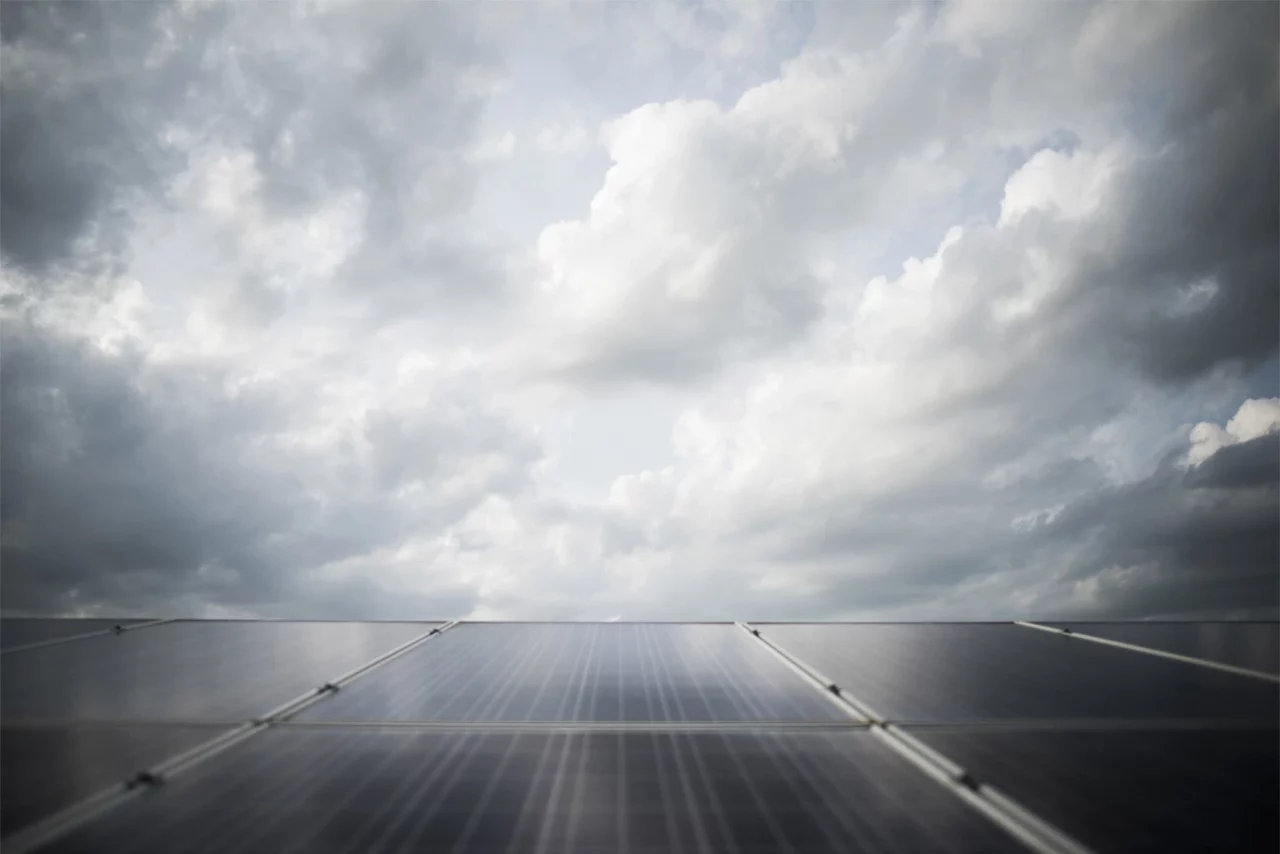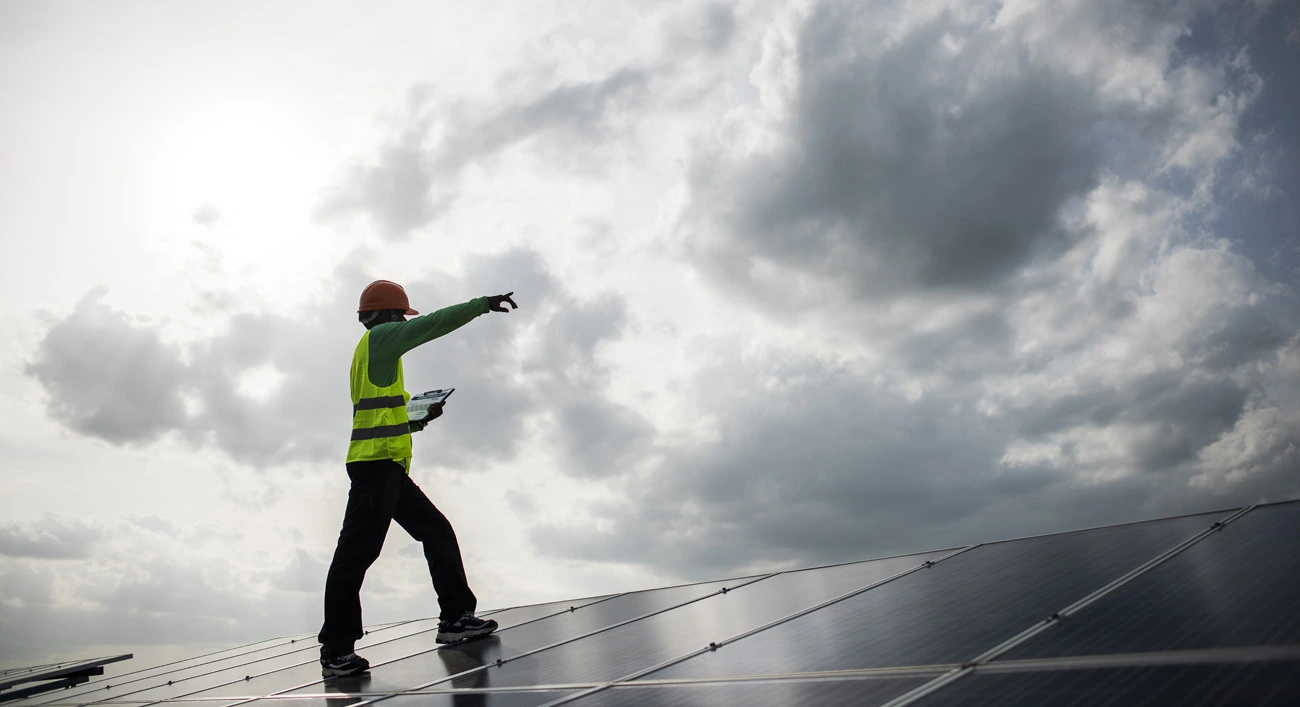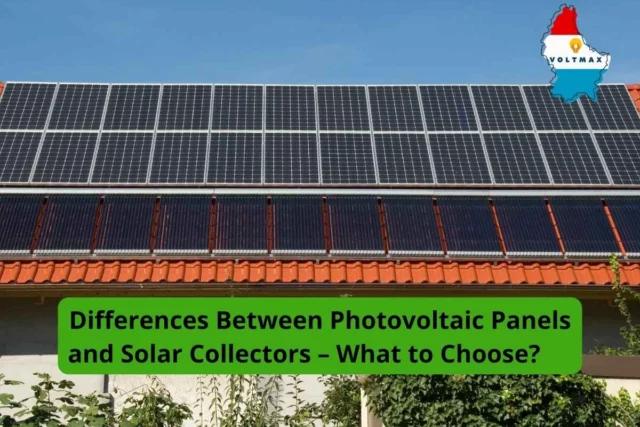
Photovoltaics is one of the most popular technologies that makes it possible to use solar energy to generate electricity. In countries where the sun shines for most of the year, photovoltaic systems are able to operate at full capacity. But what about places where weather conditions are less favorable, such as Luxembourg, where cloudy days are common? Can photovoltaics still effectively generate energy under such conditions?
Many people considering the installation of photovoltaic panels wonder whether their system will be efficient in countries with a variable climate. Luxembourg, although located in Western Europe and enjoying a relatively large number of sunny days per year, is not free from cloudy periods. This makes the question of efficiency in such conditions particularly relevant. In this article, we will look at how photovoltaics perform on cloudy days and what can be done to maximize their potential, even in less favorable weather conditions.
Table of contents
ToggleHow do photovoltaic panels work?
To answer the question about how photovoltaics work on cloudy days, it is worth starting with the basics of how solar panels function. The core component of a photovoltaic installation is the solar cell, which converts solar energy into electricity. This process takes place due to the photovoltaic effect, which is the generation of electric current under the influence of light.
Under ideal conditions, when panels are exposed to full sunlight, they operate at maximum efficiency. However, photovoltaics are not dependent solely on direct sunlight. Instead, they also make use of diffused light that reaches the panels even when the sky is overcast. In such cases, while efficiency is lower, the system can still generate electricity, and the differences in performance depending on weather conditions are relatively moderate.
Photovoltaic efficiency on cloudy days

In Luxembourg, as in many countries with a temperate climate, photovoltaic panels can still work effectively even on cloudy days. While a fully overcast sky may reduce the amount of available sunlight, solar panels are still capable of producing electricity. Of course, their efficiency in such conditions is lower than on a sunny day. Nevertheless, even on cloudy days, panels can generate between 10% and 30% of their full capacity.
It is also worth mentioning that photovoltaic systems equipped with technologies such as microinverters, which convert direct current into alternating current directly at the panel, can better adapt to changing light conditions. These solutions allow for more stable energy production, even when sunlight is partially or fully blocked by clouds.
What influences photovoltaic efficiency on cloudy days?
Although photovoltaic panels in Luxembourg can operate under cloudy conditions, several factors may influence their performance. First and foremost, the type and density of clouds play an important role. If the clouds are light and thin, some sunlight will still reach the panels, allowing them to function effectively. On the other hand, thick, heavy clouds can block a larger portion of solar radiation, leading to reduced system efficiency. However, it is important to remember that photovoltaic systems are designed with variable weather conditions in mind, and their design allows them to adapt to such circumstances.
Another factor is the time of day. Photovoltaics work most efficiently at midday when the sun is at its highest point in the sky. However, in the morning and evening, when solar radiation is less intense, panels produce less energy, regardless of whether the sky is cloudy or clear. It should also be noted that in Luxembourg, as in other temperate countries, the length of the day varies depending on the season, which also affects the amount of available light.
What solutions can improve the efficiency of photovoltaic systems on cloudy days?
Although solar panels generate electricity on cloudy days, several solutions can help improve their performance, especially in regions where such conditions are quite common, like Luxembourg. One such solution is the use of energy storage systems. With storage, surplus energy produced on sunny days can be stored and used when sunlight is less abundant. This ensures a more stable supply of electricity for households and businesses, even when the weather is not favorable.
Another option is the installation of higher-efficiency panels, such as bifacial panels, which can generate electricity from both sides—on the top, from direct sunlight, and on the bottom, from light reflected from the ground. Although the initial cost of such panels may be higher, their ability to operate under challenging conditions can prove cost-effective in the long term.
More advanced systems that track sunlight and automatically adjust the position of the panels can also help ensure optimal orientation and tilt, further improving energy efficiency.
Photovoltaics in Luxembourg – the future under variable weather conditions
Although Luxembourg is not among the countries where the sun shines daily throughout the year, photovoltaics remain a technology capable of delivering measurable benefits. With the right technological solutions, photovoltaic systems can operate efficiently even in less favorable weather. It should be emphasized that photovoltaics are not only about savings but also about environmental responsibility, which is becoming increasingly important in light of growing ecological awareness. Combined with the rising number of subsidies and support programs for renewable energy, photovoltaics in Luxembourg are certain to become even more popular—even on cloudy days.







